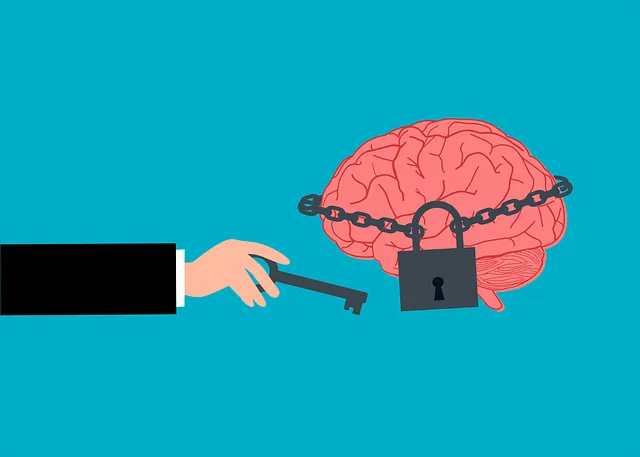The Kaiser Permanente behavioral health center in Lafayette prioritizes cultural competency training to deliver high-quality mental healthcare to its diverse community. Through sensitive approaches like emotional well-being promotion and conflict resolution, staff build trust and improve patient outcomes. Interactive workshops address cultural differences, biases, and microaggressions, fostering an inclusive environment that respects every patient's unique needs, enhancing both physical and mental wellness.
“Cultural competency in healthcare is no longer a nicety, but an imperative. This article explores why this aspect of patient care is vital, especially at institutions like Kaiser Permanente’s behavioral health center in Lafayette. We delve into the transformative impact of cultural training on provider-patient interactions, highlighting successful programs.
From understanding diverse communities to fostering empathetic communication, these strategies ensure healthcare professionals can offer equitable and effective care. Join us as we navigate this crucial topic, drawing insights from the innovative practices at Kaiser Permanente Lafayette.”
- Understanding Cultural Competency in Healthcare: Why It Matters for Patient Care
- Kaiser Permanente Lafayette: A Center for Behavioral Health and Its Mission
- The Impact of Cultural Training on Healthcare Provider Interactions with Diverse Patients
- Effective Strategies for Cultural Competency Training: Engaging and Educating Healthcare Professionals
Understanding Cultural Competency in Healthcare: Why It Matters for Patient Care

Cultural competency in healthcare refers to the ability of providers to understand and appreciate diverse cultural beliefs, values, and practices among their patient population. This is particularly crucial at institutions like Kaiser Permanente behavioral health centers, such as the one in Lafayette, where patients come from various ethnic, racial, and socio-economic backgrounds. By fostering cultural sensitivity in mental healthcare practice, healthcare professionals can create a more inclusive environment that respects individual differences and promotes better patient care.
At the Kaiser Permanente behavioral health center in Lafayette, training in cultural competency is essential for risk management planning among mental health professionals. Understanding cultural norms and behaviors helps providers communicate effectively with patients, build trust, and tailor treatment plans to meet unique needs. This not only enhances therapeutic outcomes but also contributes to the overall well-being of the community by addressing mental health disparities. Moreover, incorporating inner strength development into training programs equips healthcare workers with the resilience needed to navigate complex cultural situations, ensuring they can provide consistent, quality care regardless of the patient’s background.
Kaiser Permanente Lafayette: A Center for Behavioral Health and Its Mission

Kaiser Permanente Lafayette stands as a beacon of hope and healing in the community, serving as a dedicated Kaiser Permanente behavioral health center. This center embodies the organization’s commitment to comprehensive healthcare that addresses not just the physical, but also the mental and emotional well-being of its patients. With a focus on fostering compassion cultivation practices, Lafayette offers a safe space for individuals to navigate complex challenges like trauma and stress through evidence-based self-awareness exercises and trauma support services.
The center’s mission goes beyond treating symptoms; it aims to empower individuals with the tools and resilience needed to thrive in their daily lives. By prioritizing cultural competency, Lafayette ensures that its care is tailored to meet the unique needs of every patient, creating a supportive environment where everyone feels valued and respected.
The Impact of Cultural Training on Healthcare Provider Interactions with Diverse Patients

Cultural competency training is a game-changer for healthcare providers interacting with diverse patients. By learning to navigate the complex tapestry of different cultural backgrounds and values, providers can significantly enhance patient care at places like the Kaiser Permanente behavioral health center in Lafayette. This training equips them with essential tools such as Emotional Well-being Promotion Techniques and Conflict Resolution Techniques to build trust and respect with every patient encounter.
With effective cultural competency training, healthcare professionals become better equipped to manage stress and resolve conflicts that may arise from cultural differences. They learn to adapt their communication styles, ensuring patients feel heard and understood, ultimately leading to improved health outcomes. This is especially crucial in a diverse community like Lafayette where various ethnic groups and cultures coexist. By embracing these skills, the Kaiser Permanente behavioral health center can foster an inclusive environment, promoting better physical and mental health for all its patients.
Effective Strategies for Cultural Competency Training: Engaging and Educating Healthcare Professionals

Cultural competency training is an essential component of modern healthcare education, particularly at a diverse organization like Kaiser Permanente behavioral health center Lafayette. Engaging healthcare professionals in meaningful ways ensures that they are equipped to deliver culturally sensitive care, fostering trust and improving patient outcomes. One effective strategy is interactive workshops that facilitate open discussions on cultural differences, biases, and microaggressions. These sessions should include real-life scenarios to enhance learning through experience.
Additionally, incorporating Emotional Well-being Promotion Techniques can help healthcare providers understand the psychological impacts of cultural barriers. Teaching coping skills development allows professionals to guide patients in managing stress related to cultural disparities, improving patient satisfaction and engagement. Incorporating active listening exercises, empathy-building activities, and cross-cultural communication strategies ensures that staff members are adept at connecting with a wide range of patients, ultimately enhancing the overall healthcare experience.
Cultural competency training is a game-changer in healthcare, as evidenced by the successful initiatives at Kaiser Permanente Lafayette’s Behavioral Health Center. By equipping providers with the skills to navigate diverse patient backgrounds, these programs enhance interactions and improve overall care. The strategies outlined here, including immersive simulations and community engagement, can revolutionize healthcare delivery, ensuring that every patient receives respectful, culturally sensitive treatment. Embracing cultural competency is not just a moral imperative; it’s a key to unlocking better health outcomes for all, especially in our diverse communities.






